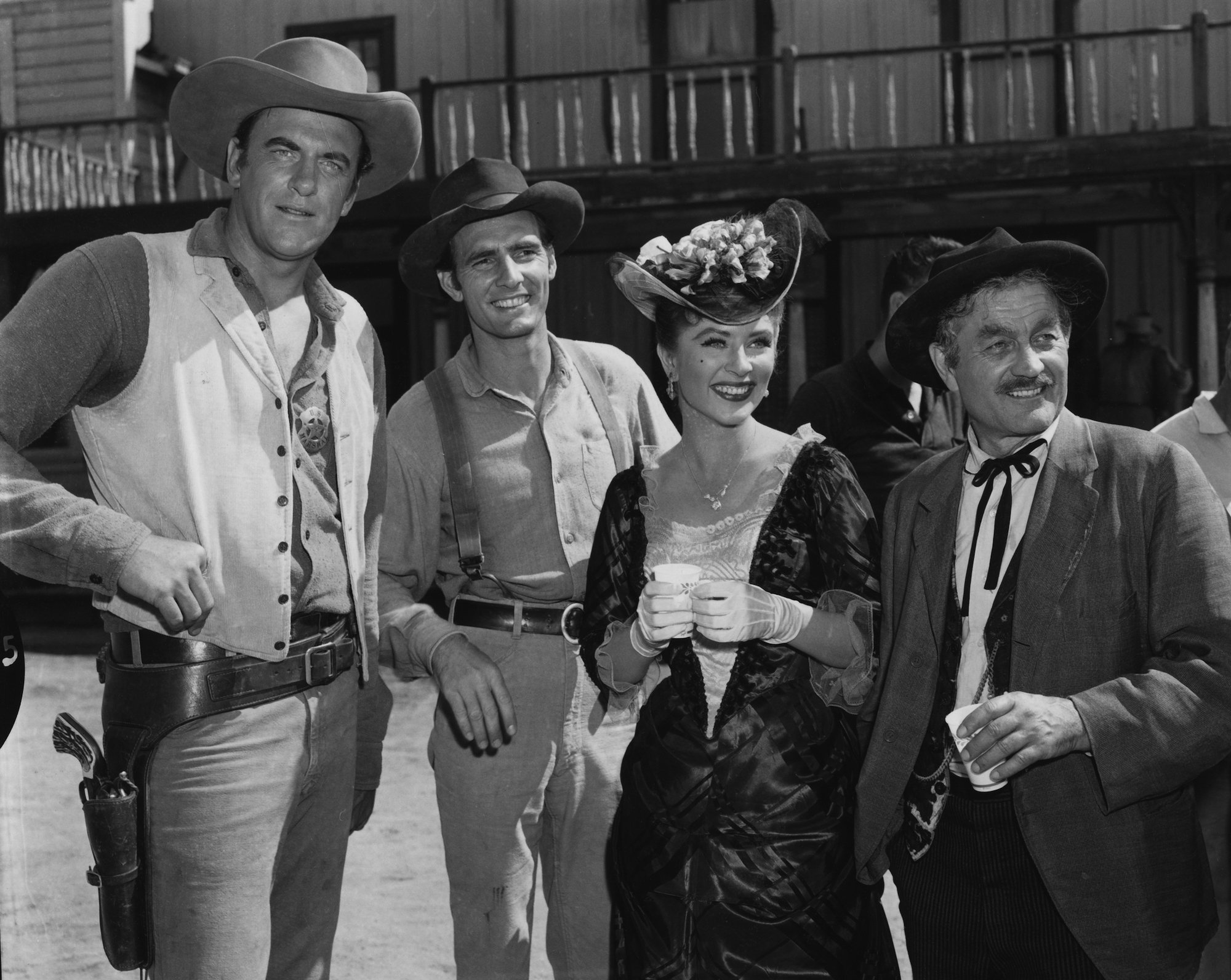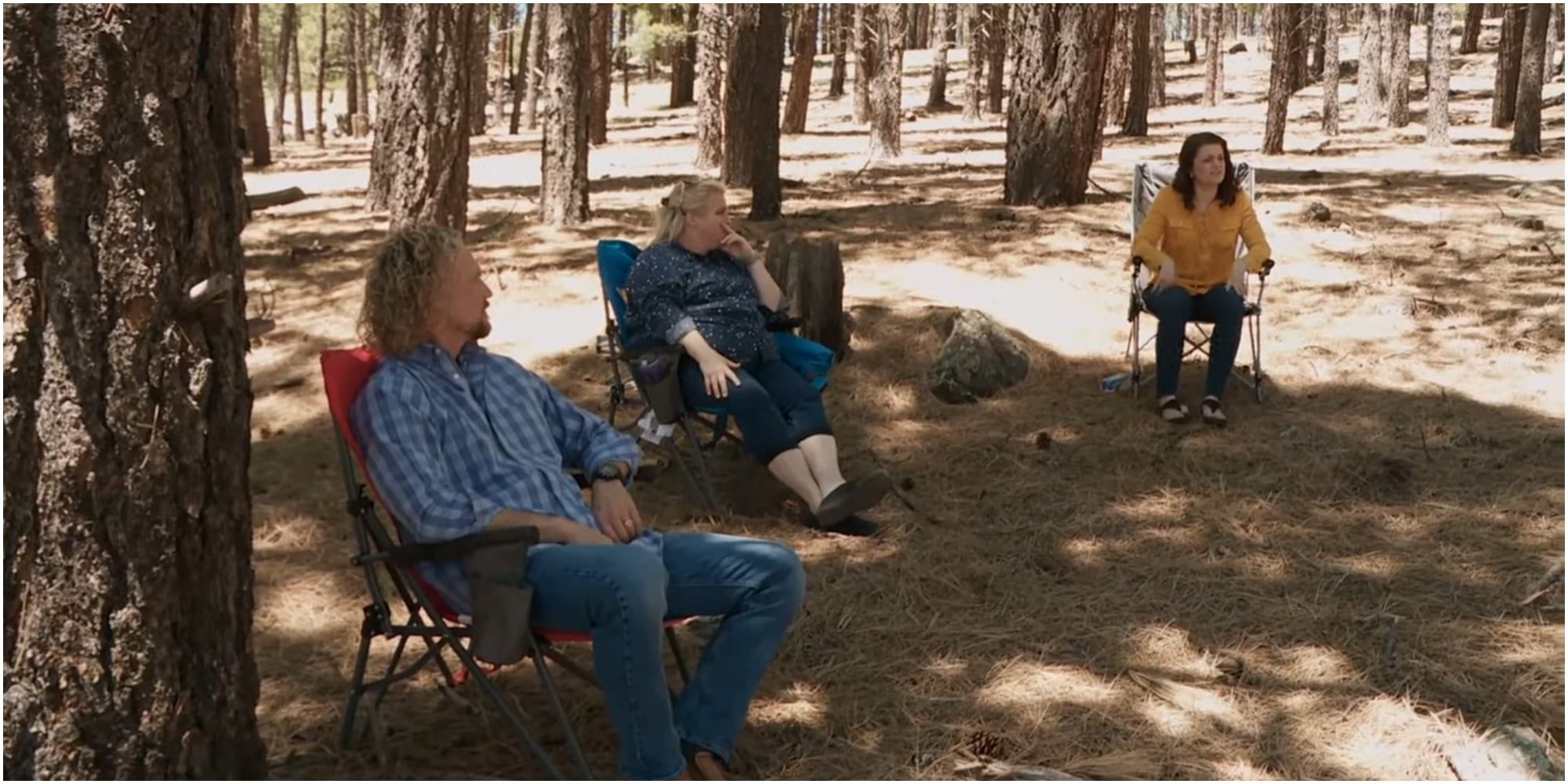‘Gunsmoke’ Wasn’t the Origin Of the Phrase ‘Get Out of Dodge’
Gunsmoke was one of the longest-running TV shows in history, and its cultural influence has lingered on. Fans have even come up with ways that the classic Western could be rebooted for modern audiences and make a comeback. The characters and their archetypal interactions on the series have a kind of universal appeal. It’s what allowed the show to have a run that spanned more than two decades, and it’s the interactions between these characters that have gone down in pop culture lore.
One iconic phrase that has been attributed to Gunsmoke is “get out of Dodge.” While the line certainly made its way onto the show, a little history research reveals that is not likely where it began.

‘Gunsmoke’ ran for 20 years
Gunsmoke was a Western that premiered on CBS in 1955 and did not conclude until 1975, according to IMDb. Remarkably, the stars James Arness (who played Marshal Matt Dillon) and Milburn Stone (who played Doc) remained in their roles for the entire 20-year run.
The show was set in Dodge City, Kansas during the 1870s. Marshal Matt Dillon is in charge of keeping order in the wild west town, and it’s a tricky job. Frontier life brings plenty of challenges from cattle thieves to gunfights, and Dillon has to display bravery and good reason to keep things from getting out of hand. Both highlighting and creating many of our common tropes about Westerns, Gunsmoke stands as an iconic representation of American ideas around rugged individualism and exploring the new frontier.
‘Get out of Dodge’ was a popular catchphrase
Dillon and his crew of law-abiding citizens are often seen trying to beat back the swarm of criminality consistently nibbling at the edges of their town. Whenever a would-be bad guy gets his rightful comeuppance at the end of an episode, the crowd watching along at home would know that all was right in the world. Often, Dillon would kick out the troublemaker with a stern warning to “get out of Dodge,” or — if the crime was serious enough — “get the hell out of Dodge.”
This catchphrase, according to MeTV, stuck around in the popular culture. Teens started using the phrase in everyday parlance, and its popularity as a way to say “get out of here” has outlived the show that popularized it by decades. In fact, you can still hear the phrase tossed around today.
‘Gunsmoke’ was not the origin of the phrase
While there is no doubt that Gunsmoke and its long and popular run as a beloved television show helped popularize the phrase “get out of Dodge,” it’s not actually the source of the saying.
As the Smithsonian Magazine explains, Dodge City was a real place, and its reputation for lawlessness was based on actual events: “The media embellished the town’s belligerence and bedlam—both genuine and created—to produce the iconic Dodge City that was, and remains, a cultural metaphor for violence and anarchy in a celebrated Old West.” The phrase also was popularized during the Vietnam War with troops who were using it to mean getting away from an unpleasant or dangerous situation.
Still, its association with Gunsmoke — and the fictionalized myth surrounding the real-life American frontier — cannot be denied. Even today, “imaginary Dodge is still hard at work helping Americans chart their moral landscape as the archetypal bad civic example.” We still use the stories — real and embellished — from Dodge City to help us think through our own responsibility as citizens of a community, and we still — when faced with a steep enough problem — decide it’s time to ‘get the hell out of Dodge.'”


